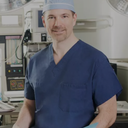Based on the information given, your current primary diagnosis is morbid obesity.The correct treatment for this is weight loss.Ideally, this is done by modifying eating patterns.Liposuction will not be able to remove any significant amount of the weight you are carrying.If you are able to successfully bring yourself down to a healthy normal body weight by changing lifestyle or with weight loss surgery, you will no longer need any type of fat removal procedure but, rather, more likely a skin removal procedure.Regardless, without photographs or, better yet, an in-person consultation, no one can give you an accurate assessment of what's appropriate for you other than the need for weight loss.High-volume, full-body liposuction tends to be expensive.Expect to pay $5,500-$9,000.This is money poorly spent unless you are a good candidate for the procedure.A few thoughts on weight loss.While liposuction is generally not prescribed as a treatment for obesity, most patients who get liposuction are somewhat overweight.From having met thousands of people interested in liposuction, I have had ample opportunity to talk to many people about their struggle with weight.A few repeating patterns seem to emerge.Perhaps the most common one is people not eating frequently enough. Losing weight by not eating is a fallacy. In reality, we tend to overeat after having gone hungry.Another common misunderstanding is the relationship between weight and exercise. Most patients are not successful at losing weight by exercising without changes in diet. Weight is 90% diet. Exercise has to do with fitness. Think of diet and exercise as two separate entities with two separate purposes.That said, I encourage everyone to exercise on a regular basis. The majority of people get hungry from working out and tend to overeat afterwards, sometimes feeling justified to do so after a strenuous workout. The number of calories burned during a typical workout session is far less than people believe.Any successful weight reduction program has to be based on permanent change. Any temporary diet plan will ultimately fail if not followed by permanent changes in behavior.Understand the role that insulin plays in obesity and what causes insulin surges. If you read the late Dr. Atkins' book, you will learn that his obsession was with controlling insulin much more so than with eliminating carbohydrates.Learn about the glycemic index and glycemic loads. Avoid eating meals that give a high glycemic load. This is somewhat similar to saying avoid eating large carbohydrate-based meals, though understanding what foods constitute as bad carbohydrate meals is critical. This will be learned after mastering the concepts of the glycemic index and glycemic load.Here are my rules to keep weight under control: Never go hungry.Never eat a large meal. Never, never, never eat a large meal when you're hungry.Avoid large carbohydrate-based meals.Don't expect exercise to get your weight down and don't blame the lack of exercise for not being able to maintain your weight.Step on the scale every day after you get out of the shower in the morning.Accept weight fluctuations. None of us stay at the same weight or continue to go down in weight. Don't beat yourself up if you gain a few pounds. It's the long-term, rest-of-your-life progress that matters. I hope that is of some help.Best of luck,Mats Hagstrom, M.D.






